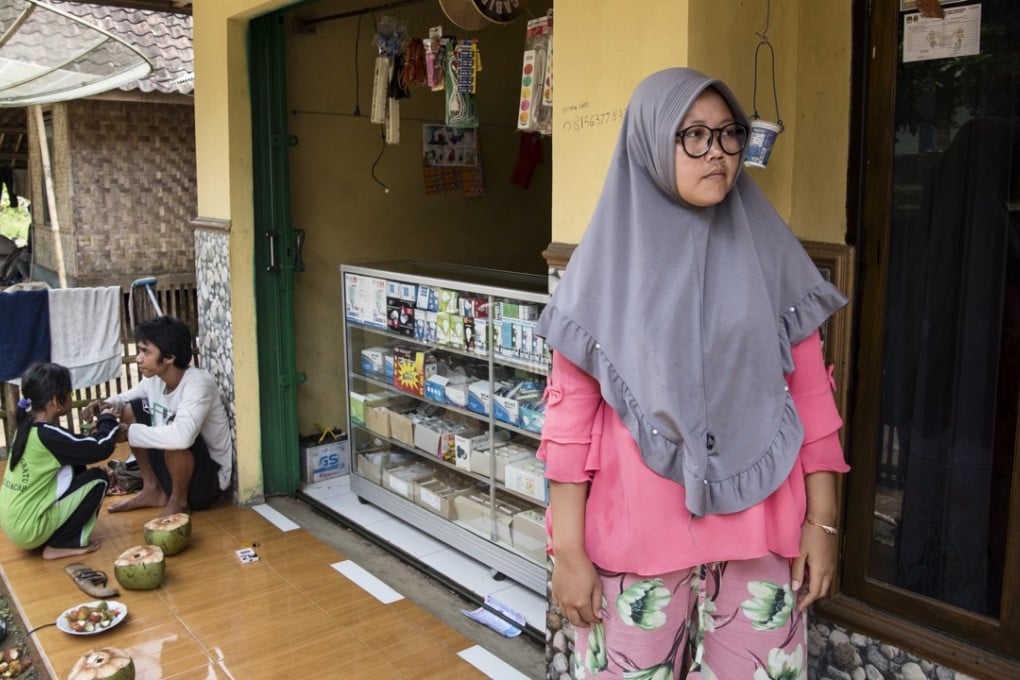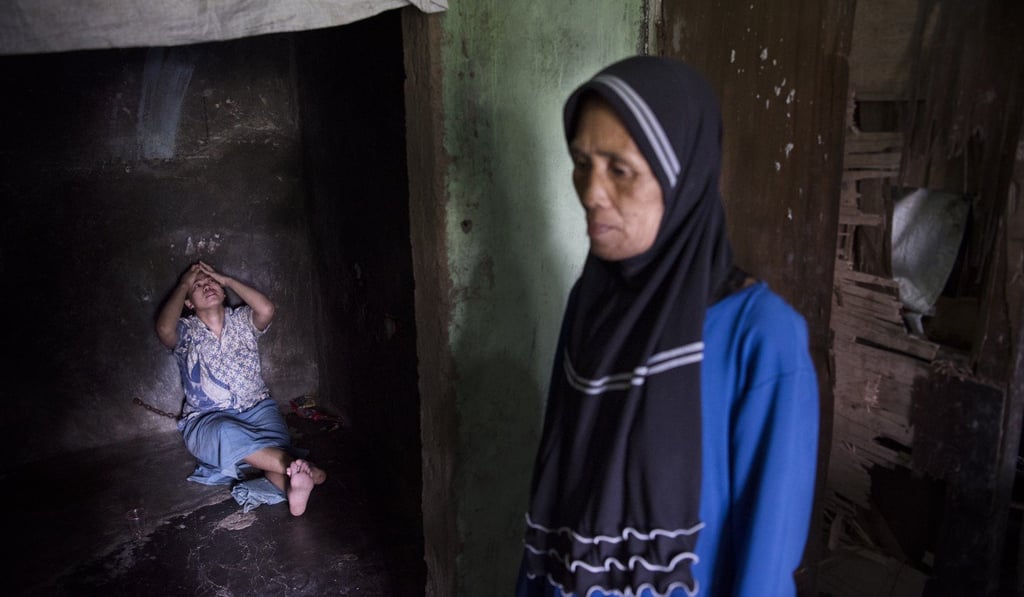Indonesian domestic helpers on sex abuse, slavery-like conditions they endure working overseas
Women tell heartbreaking stories about the sacrifices they make – and the dangers they face – toiling abroad to support families at home

Ernawati made great sacrifices for the well-being of her family. She was married at 14 to a man six years her senior and became the breadwinner two years later, when she first travelled to Saudi Arabia, to work as a domestic helper. She never complained, we are told, and earned enough to pay for one of the best houses on the rural outskirts of Sukabumi, a chaotic city of 318,000 people in West Java, Indonesia.
Ernawati now spends her days chained up in a small storeroom in the house she worked so hard to build, bound in such a way that she cannot properly stand. Now 23, she has no window or light and the door to her room remains closed for most of the day. She is forced to relieve herself where she lies, and most of the time she eats nothing other than rice and vegetables.
Her crime? She has been diagnosed with schizophrenia and “we can’t even afford to take her to the hospital”, says her mother, Abtyah. “We can’t let her free because she harms herself and others. Even if I leave her a longer chain, she will start to kick the wall until her feet bleed,” she adds.
“Someone visits her every five days to provide medication – mostly sedatives such as diazepam – but we can’t force the family to improve her living standards,” says Sugih, a health worker at the rudimentary Sukabumi health centre. “It’s not uncommon for those who suffer mental disorders to be chained in Indonesia.”
According to a 2016 report by Human Rights Watch, more than 18,000 people with mental illnesses are chained or locked up in the country. This practice even has a name – pasung. It was banned in 1977 but authorities admit that it still continues and have drafted a plan to fully abolish it next year, a plan that appears doomed from the start.
